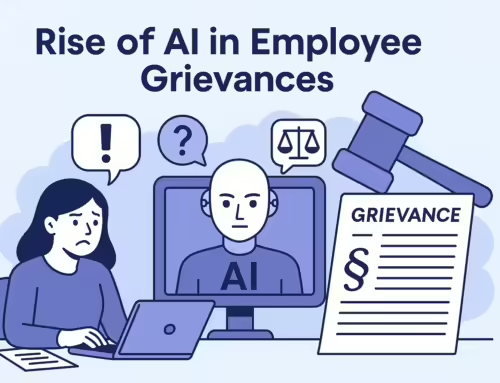Richard Branson recently launched his Disruptors programme aimed at challenging conventional business and employee management wisdom to help drive business growth and employee well-being.
In a recent BBC article Richard Branson discussed the value of disruptors in the business and how you need to manage them to get the best from them.
What is Disruptive Talent?
‘Disruptive Talent’ is a proposition developed by OE Cam and is a term used to describe people who are ‘brilliant but ‘challenging’. They innovate, challenge conventional wisdom and tenaciously find new and better ways to deliver business success.’ In the past they may have been side-lined due to their unusual approach or inability to work within a team, but now they are being recognised for their potential to revolutionise the firms in which they work.
What are the benefits?
As with all things there isn’t a lot of science behind this approach, but it is more of a concept as much as anything else. The benefits are there but are more assumed than fact. The principle is that disruptive talent can bring that person who thinks outside the box, is stubborn in seeing things through, is driven by their own opinions and wants to make something happen, and not sit back and let the world pass by.
The business impact is disruptive talent can create the shift a business needs when it is plateauing or struggling to reach strategic goals. they bring the injection of energy and fresh ideas to kick things forward, and not just repeat the same failed approaches of previous regimes, or create those original concepts that make a difference.
Managing disruptive talent
According to OE Cam recruiting and managing disruptive talent is not that easy….
They are mavericks, independents and perceived as stubborn or even temperamental. Therefore, organisations seeking to harness such ability, must be careful that they have recruited disruptive talent, not just those who are plain disruptive.
David Yiend has implemented a disruptive talent process in to his business AB Agri and suggests that you don’t try to integrate disruptors, but try to keep them away from others who may find their approach challenging. They are by nature ‘provocative, unbending, and relentless in their pursuit of the goal’, managers have to be ready to argue and debate, not just accept the norm.
The best way to think about the approach to managing disruptive talent is that it’s a bit likely managing a premier league football team with a star striker.
They are a team, they have roles to play and fundamentally they all want the same thing, disruptors however are more likely to do it their way and may on occasion work outside the team to reach the goal by acting independently or ignoring colleagues. So they’ve won the match, not always stuck to the rules, and not doubt caused some friction – but the aim was achieved.
The trick to managing this kind of start player is to not manage them the same way as the group, but to treat them as people – they may be able to take criticism a bit more directly, they may need a fair degree of ego striking and may even need blunt direction on occasion.
Recruiting disruptive talent
Here are some general points to consider if you want to hire disruptors:
- Write challenging person specs that emphasise the talent you need
- Avoid recruiting in your own image, and not looking for fit with others, check what they can do and how they can add value to the business
- Interview based on capability not just personality – use competency interviews to dig in to what they have done and how they did it
- Make use of psychometrics, not just to measure the person, but to give the manager clues about how they may need to be managed if hired
Rob Coates is the founder of Willerby Hill, HR Advisors




